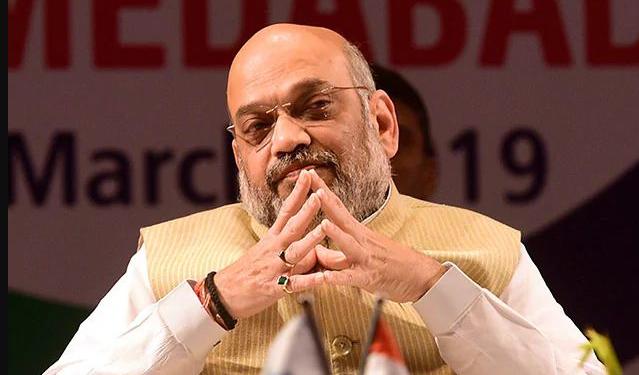Contrary to the policies formulated by past governments on Kashmir, the newly appointed Union Home Minister Amit Shah has ensured that no policy is framed on Kashmir without the active participation of Kashmiri Pandits. The Kashmiri Pandits faced persecution, massacres and mass exodus three decades ago, but remain an inseparable part of Kashmir. As such formulating any policy on Jammu and Kashmir without their participation does not serve any real purpose.
In fact, Kashmiri Pandits have also welcomed the change in policy on Kashmir under the present Union Home Minister, Amit Shah. In particular, they have welcomed Shah’s statement about Article 370 of the Constitution wherein he said that the provision was of a temporary nature. Panun Kashmir, an organisation of migrant Kashmiri Pandits stated, “The expression of the Home Minister in the Lok Sabha is a statement of truth and most heartening. We say Article 370 has to go eventually and the time is now. This article was instrumental in creating alienation in a section of Kashmiri Muslims and encouraged Pakistan to sponsor terrorism in the state.”
In his speeches and actions, Amit Shah has made it clear that Kashmiri Pandits will no longer be denied their due. They are a persecuted community which faced heart wrenching violence bordering on ethnic cleansing followed by decades of neglect by successive governments. It is time to make amends for the wrongdoings of the past. Even the Shiv Sena mouthpiece, Saamana, spoke in favour of Shah in an editorial and has backed Shah in favour of a Hindu CM in the state of Jammu & Kashmir. The newspaper said, “There are 68.35% Muslims in the J&K valley, while Hindus constitute 28.45%. There are Sikhs too in the state. But J&K has not been offered to Muslims on a platter. The Muslims may call themselves Kashmiris, but they are citizens of India and hence the law of the land should apply to them too.” Saamna also quoted media reports and stated that Shah was keen on fresh delimitation of assembly seats in the state of Jammu and Kashmir. Currently, there are 37 seats in Jammu, 4 in Ladakh and 46 in the valley. Therefore, the valley enjoys a position of advantage as far as assembly polls are concerned. Saamna added, “Actually Jammu, which covers a larger area than Kashmir, sends fewer MLAs to the state assembly. This could be a gameplan to ensure J & K doesn’t ever get a Hindu CM and Muslims are thus kept happy.”
The fact that Kashmiri Pandits occupy the centre stage of Shah’s policy on Kashmir is further illustrated by the fact that Shah disclosed in the lower house of the Parliament that the government has taken steps to empower the Kashmiri Pandits. He stated, “We have empowered governance in Ladakh and steps have been taken for the empowerment of Kashmiri Pandits by increasing cash assistance for them.”
It is, thus clear that the Kashmir policy has witnessed a massive turnaround under Amit Shah’s watch. With this, it is becoming clearer that the Kashmir policy will no longer be based on unjustified neglect of Kashmiri Pandits. They are a key stakeholder in the state and the fact that they had faced persecution as well as their minority status entitles them to special government attention. Finally, under Union Home Minister Shah, the government is moving in the right direction as far as Kashmir policy is concerned.


























